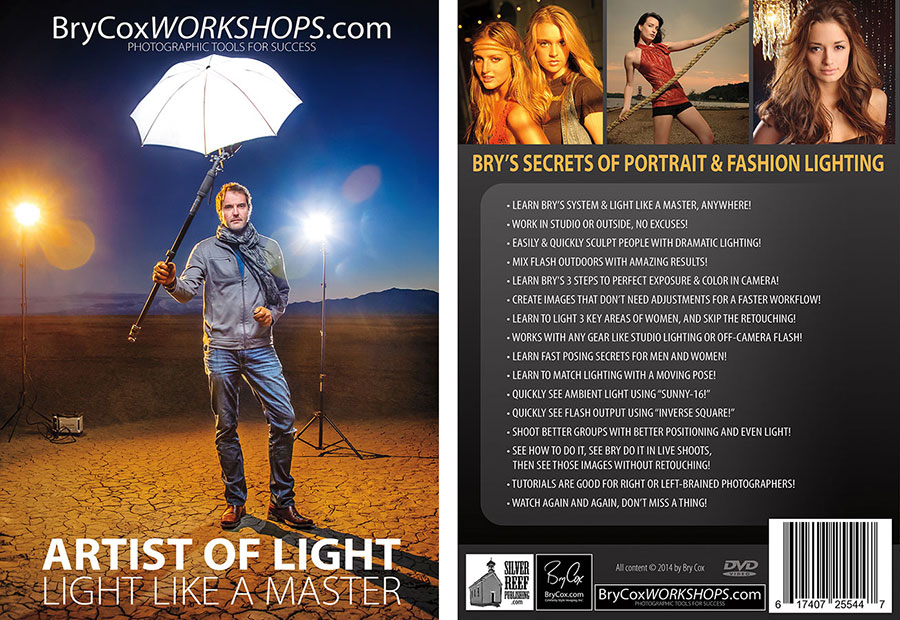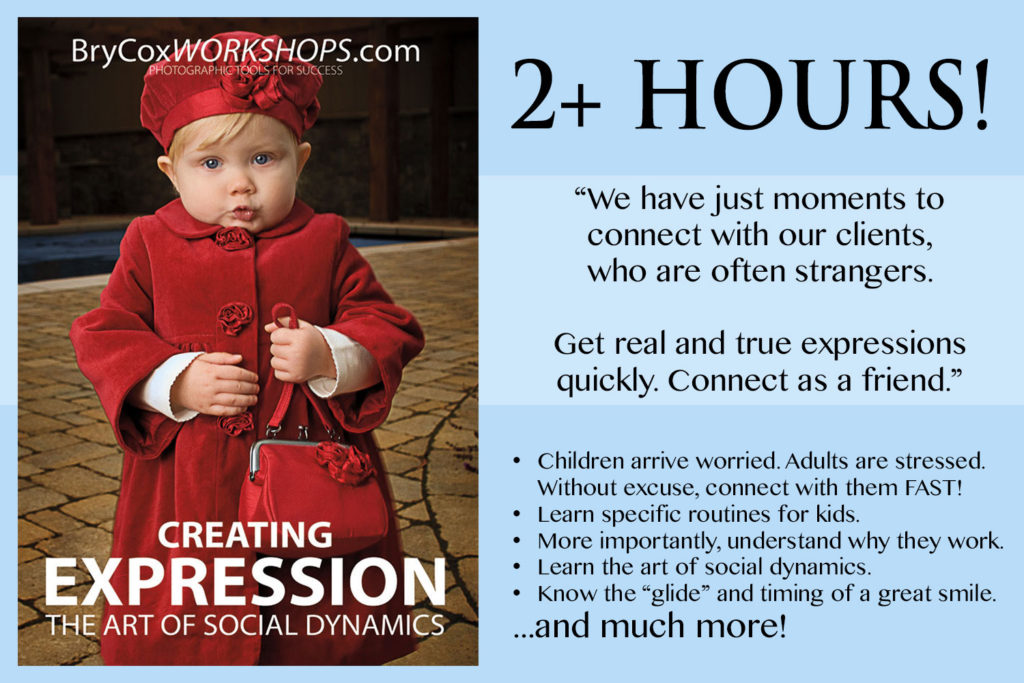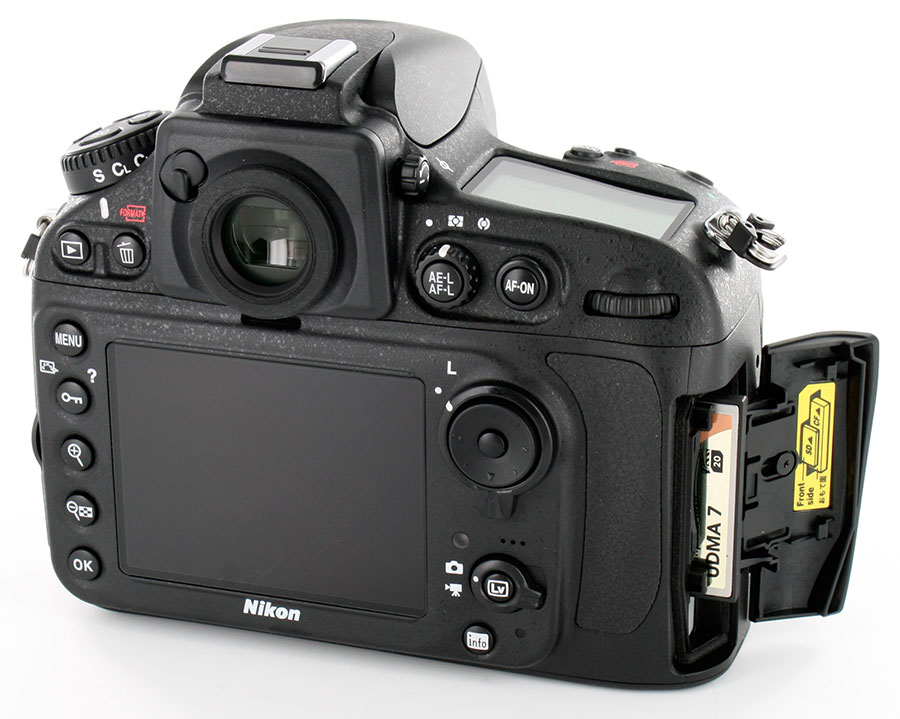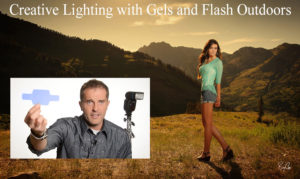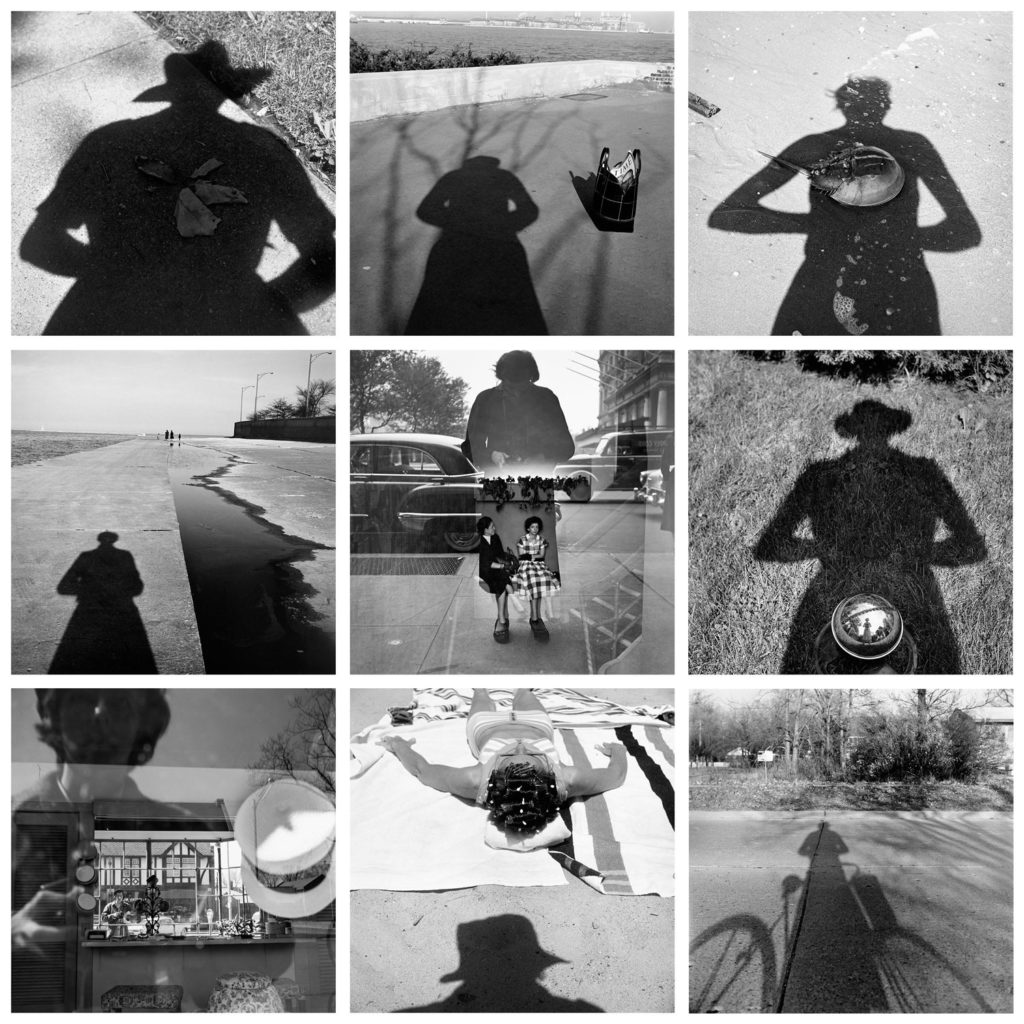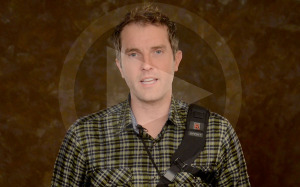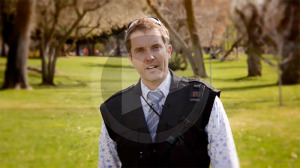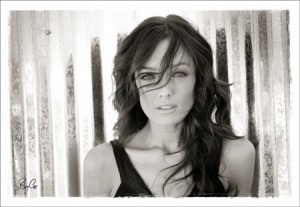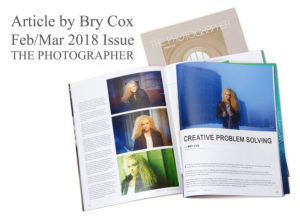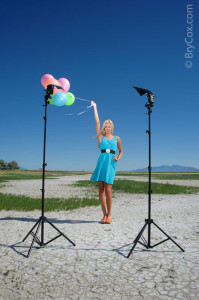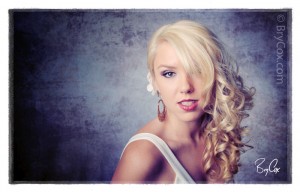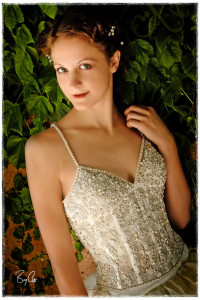Getting Things Right in the Camera
All of these courses and articles are about getting your images perfect and amazing in camera. It’s the camera settings, sculpting our clients with lighting, engaging them for wonderful expressions, and posing and directing them so they look great.
When we do all of these things, our images come out looking amazing before we even do any retouching. And we can shoot fewer images while also getting more variety and creativity in our images. This is all the foundation for a faster workflow and better sales.
I recommend going through these courses in this order.
1. Artist of Light – Light Like a Master (3 hours of instruction)
Over the three hours in length, this training is broken into two parts. First, to-the-point training and instruction covering everything that I think about in a shoot, and exactly how to do it, even the secrets of posing men and women without a posing guide, and expanding these concepts out to large groups.
In the second section, you come with me on four actual photo shoots, two in a studio and two outside on location – including an outdoor shoot in the hardest of circumstances: no overcast, no shade, but instead broad daylight in open land with no trees, shooting on the side of a road. And you see the images both with and without retouching so you can see how great things look before retouching.
2. Getting Expression – The Art of Social Dynamics (2 hours of instruction)
This two hour course covers the key aspects to the art of social dynamics. There are reasons children and adults will either respond to us or not. There are reasons why some people are easier to connect with and others are harder. We need to understand these, and know just how to get through and connect with our clients, young and old – and that’s what this course will teach you.
We have just moments to connect with strangers, and create works of art. Clients come in, more often as strangers. Their children are often young and worried about us and the new location they’re in. Our client’s moods vary depending on stress levels, and people have their wall up and want to give us their pretend “smile.”
3. What’s Your Pre-Flight Checklist
At the beginning of any photo shoot and occasionally during the shoot, you need to have a system of checking the various settings on your camera. Just as you would do before taking off in a plane, you should have a specific list of settings that you check before starting a shoot. This should be a habit whether it’s an all day event your photographing, or some small thing.
I personally do this for two reasons. First, I want the highest possible quality in camera so I can avoid having to do computer work later, and second I want to avoid the problem of having something set wrong on my camera and not noticing it until later. Hopefully you’ve never had the horrible feeling after a shoot of noticing that your auto-focus was bumped off during a shoot, or your ISO was left up too high from your last shoot. We can avoid stress and potential problems by having a series of things that we check on our cameras.
4. Fashion Posing for Women
See how the concepts from ‘Artist of Light’ and ‘Getting Expression’ work in this quick 5 minute photo shoot of a complete stranger, a model I photographed and met for the first time while shooting her in front of a crowd for a demo.
Part 1: Fashion Posing for Women – Number One Rule of Posing
Part 2: Fashion Posing for Women – 5 Big Tricks to a Better Fashion Shoot
Part 3: Fashion Posing for Women – Fashion Skills in Action
Part 4: Fashion Posing for Women – Fashion Skills in Action
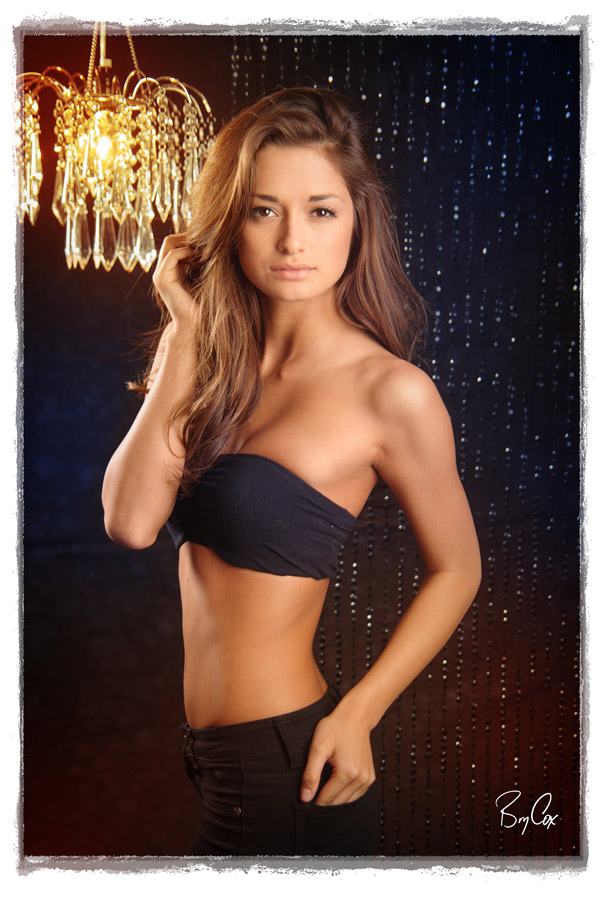
5. Quick Articles – Lighting Overview
New to lighting and controlling light? Here are four video articles I did for ExpoImaging as an intro on the concepts of lighting.
Part 1: Tired of Wasting Your Time Fixing Color?
Part 2: Adding Light Direction with a Reflector
Part 3: Adding Speedlight Flashes & FlashBenders
Part 4: Creative Lighting with Gels and Flash Outdoors
6. Posing & Reading People
I was flown to China to speak on photographer Vivian Maier and this article that I wrote about her. I recommend reading this because we as photographers need to constantly work to increase our skills in reading people.
“As a portrait photographer, I find people fascinating. I’ve worked for a couple decades on being able to read the people that come into my studio the way a fortuneteller might. I’m curious as to people’s personalities, their background, and the things in their lives that have made them who they are. Mannerisms, body language, physical characteristics, they way they dress, comb their hair, the style and things that they are attracted to, the things they talk about or don’t talk about – all of these and more speak volumes about a person.”
7. Other Articles You Might Enjoy
3 Steps to a Perfect Exposure & White Balance. Never adjust a thing later!
The 3 Fs of Mixing Flash with Sunlight
Posing Secrets for Men and Women, and Breaking the Rules
Article: Creative Problem Solving
Part 1: Using Flash Gels in a New Way
Part 2: Retouching of Iamges from ‘Gel Flash’ Shoot
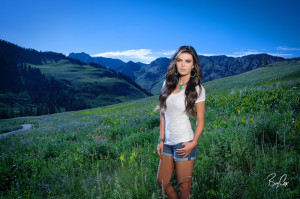
Part 1: Lighting on Location with Rogue Flash Benders
Part 2: Retouching of Images from ‘Rogue Flash Bender’ Shoot
3 Steps Process to Lighting Women for Zero Retouching
One Big Rule of Fashion Posing
Next Up – Take Your Images Further with Lightroom and Photoshop Training
